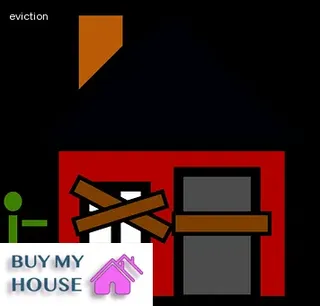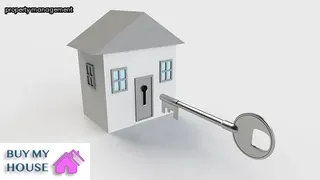Eviction is a legal process that can be long and complicated, especially in the state of Idaho. Landlords and property managers should have a full understanding of Idaho's eviction process before beginning to evict a tenant.
Generally, the amount of time it takes to complete an eviction in Idaho will depend on which county or city the rental property is located in and how quickly the court can take action. In most circumstances, landlords must provide tenants with written notice of their intention to terminate the lease agreement for nonpayment of rent or other violations, then file an official complaint with the court if the tenant does not vacate the property by the date indicated in the notice.
Once this has been done, a hearing will be scheduled where both parties may present evidence and arguments to support their case. If a landlord prevails at this hearing, they will receive a judgment from the court which provides them with permission to evict their tenant within a certain period of time; however, if there are delays due to paperwork or other issues, this timeline may need to be extended.
It's important for landlords and property managers in Idaho to take all necessary steps during an eviction process in order to avoid costly delays while protecting their rights as owners.

In Idaho, tenants have certain legal rights during an eviction process. These include the right to receive prior written notice of the landlord's intention to terminate the tenancy, an opportunity to contest the eviction and a period of time in which they can either move out or comply with their rental agreement before an eviction hearing is scheduled.
Additionally, tenants are entitled to due process and must be served with a summons and complaint in order for the eviction action to proceed. Landlords must also provide proper notice when terminating a tenant’s lease, as well as have all documents related to the termination readily available if requested by the tenant during court proceedings.
Finally, landlords are not permitted to remove tenants on their own or change locks without first obtaining a court order. Understanding these legal rights can help both tenants and landlords alike navigate through Idaho's eviction process successfully.
When it comes to eviction proceedings, landlords and property managers in Idaho need to be aware of who is responsible for the costs associated with the process. Generally, tenants are responsible for the costs of an eviction since they are the ones that have violated the terms of their rental agreement.
Landlords are usually not obligated to cover any costs related to an eviction unless there is a specific clause in their lease agreement that states otherwise. In some cases, landlords may be legally obligated to pay certain fees associated with an eviction if local laws require them to do so.
Additionally, legal representation can also add additional costs that landlords and property managers should factor into their budget when considering evicting a tenant. It is important for landlords and property managers to understand who will be responsible for paying for the various costs associated with an Idaho eviction so that they can adequately prepare financially.

Illegal evictions, also known as “self-help” evictions, are when a tenant is forcibly removed from their rental property without the involvement of the court system. This type of eviction is considered unlawful in Idaho and can potentially result in serious legal consequences for landlords or property managers.
In contrast to illegal evictions, legal evictions must follow a certain process laid out by Idaho law that dictates how long it takes for an eviction to be completed. Legal evictions must start with a written notice to the tenant outlining why they are being asked to vacate the premises, followed by a summons and complaint if the tenant does not leave by the specified date.
If the tenant still refuses to leave after this point, then a hearing will be held where both parties can present evidence and make arguments before a judge decides whether or not an eviction should take place. If approved, then the landlord or property manager may obtain an eviction order from the court that allows them to have law enforcement remove the tenant from the premises.
The entire legal process can take anywhere from one month up to six months depending on factors such as how quickly paperwork is filed and scheduling conflicts in court.
The distinction between evictions for cause and without cause is an important one for landlords and property managers in Idaho to understand. Termination with cause typically involves a breach of the lease agreement, such as failing to pay rent or engaging in criminal activity, while termination without cause does not require proof of any particular violation.
Tenant eviction proceedings may also be initiated due to nuisance or health and safety hazards. Eviction proceedings in Idaho must be done through the court system and are subject to state law; however, the length of the process will depend on various factors such as whether there is an appeal by the tenant.
All parties must follow specific steps and provide relevant documentation, so it’s important that landlords and property managers have a good understanding of their legal rights. In order to ensure a successful outcome, it is essential that all details are handled properly from start to finish.

Eviction is a complex process that requires careful consideration and planning by landlords and property managers in Idaho. Common causes for a landlord to evict a tenant include non-payment of rent or violation of the lease agreement.
When tenants fail to pay rent, they may be in breach of their contract with the landlord. This can lead to eviction proceedings if the tenant does not make up the rent within a certain time period.
Additionally, if a tenant violates any other term of their lease, such as unauthorized pets or damage to the property, this can also lead to an eviction process. In some cases, landlords may choose to evict tenants for more serious issues such as illegal activity or criminal behavior on the property.
Evictions are always dealt with seriously in Idaho and landlords must take steps to ensure that all procedures are followed correctly in order to ensure a successful outcome.
The consequences of not following the right eviction procedure in Idaho can be serious. When attempting to evict a tenant, it is important for landlords and property managers to understand their legal rights and obligations under Idaho law.
If the proper steps are not followed, landlords could face hefty fines or even possible criminal charges. Additionally, a landlord who does not follow the appropriate process may find that their case is dismissed by the court and they will have to start all over again, extending the eviction process significantly.
Furthermore, an improperly served eviction notice may leave landlords vulnerable to claims of discrimination or harassment. It is therefore essential for landlords and property managers to be aware of their rights and responsibilities in order to protect themselves from potential legal repercussions related to improper evictions.
Understanding how long an eviction process takes in Idaho can help ensure that everything is handled correctly and efficiently.

When it comes to eviction laws, Idaho has a unique legal system that may differ from other states. While the eviction process in Idaho can take anywhere from several weeks to several months to complete, there are certain rules that landlords and property managers need to follow throughout the process.
For example, in Idaho, a landlord must provide tenants with a 30-day notice before they can initiate an eviction lawsuit. Even after an eviction is filed, tenants may be able to remain in their rental unit for several more weeks while awaiting a hearing.
Furthermore, some cities in Idaho may have even stricter regulations than the state's laws; therefore, it is important for landlords and property managers to be aware of local ordinances when navigating the eviction process. Lastly, it is important for landlords and property managers to understand that Idaho's tenant protection laws are much more lenient than those in other states like California or New York.
When landlords or property managers are exploring the eviction process in Idaho, they should be aware that there are various forms and documents they need to prepare. These documents must be completed correctly in order for the eviction process to move forward.
The documents typically associated with an eviction can include a notice of termination, complaint form, summons, affidavit of service, and any other court forms required by Idaho law. It is important to note that these forms should be customized based on the individual circumstances of each tenant and property.
The landlord or property manager should also ensure that all relevant deadlines are met when filing each form in order to avoid any complications or delays during the eviction process.

In Idaho, the eviction process timeline for landlords and property managers follows specific key steps. The first step is to provide a tenant with proper notice, which is typically 3 days in the case of nonpayment of rent.
After sending this notice, the landlord must then file an eviction lawsuit at the local courthouse. At that point, a court hearing will be scheduled at least 10 days after the initial filing.
During this hearing, both parties will present evidence and make arguments before a judge who will make a final decision on whether or not to issue an eviction order. If granted, the tenant will have 7 days to vacate the property.
If not vacated within that timeframe, landlords can then request for a writ of restitution which grants permission for law enforcement to physically remove tenants from their rental unit.
The eviction process in Idaho is heavily regulated by state laws, and landlords and property managers must understand the specifics of these regulations to ensure compliance. Evictions can be complicated, and the timeline of events that constitute an eviction are lengthy.
Some of the reasons behind rules and regulations around evictions include protecting tenants from wrongful evictions, creating a clear and fair process for landlords to follow when evicting tenants, and providing a framework to resolve disputes between tenant and landlord over payment issues. Additionally, it is important to consider state-specific rules when evicting tenants in order to avoid any potential litigation or future disputes.
Understanding the details of the eviction process in Idaho is necessary for landlords and property managers to successfully navigate them while also following all applicable regulations.

In Idaho, the legal process of evicting a tenant begins with the landlord serving an eviction notice.
This notice must be in writing and include the tenant's name, property address, reason for eviction, and the date by which they must vacate the property.
The landlord is required to provide a minimum 14-day notice for any nonpayment of rent or lease violations; however, if the tenant has caused damage to the rental property or is a danger to other tenants, then this period can be shortened to three days.
Additionally, landlords are not allowed to change locks or remove personal property from the premises until after receiving a court order in favor of eviction.
When it comes to an eviction process in Idaho, tenants need to be aware that they have certain defenses available to them. These defenses can either prevent an eviction from taking place or reduce the amount of damages a tenant may be liable for if the eviction is successful.
Some valid defenses a tenant can make against an eviction include demonstrating that the landlord failed to properly serve the notice of eviction, proving that the tenant was not responsible for any damage caused and showing evidence of retaliation by the landlord for exercising their rights as a tenant. Additionally, a tenant may also have legal grounds if there was discrimination involved or if they were not given proper notice before being evicted.
It's important for both landlords and property managers to understand these valid defenses so they can avoid any potential legal issues with their tenants.

When a tenant is evicted from their home, the eviction process must be completed in order to legally remove them from the property. In Idaho, a landlord or property manager must serve the tenant with an official Notice of Eviction and then file an Unlawful Detainer action with the court.
The court will then issue a Summons and Complaint which will give the tenant five days to respond. If they do not respond within that time period, the landlord can request an Entry of Default which will allow them to proceed with the eviction process.
The judge will then issue a Writ of Restitution which orders law enforcement to physically remove the tenant from the premises. Although this process can be lengthy, it is important for landlords and property managers to follow all of the steps correctly in order to legally evict a tenant in Idaho.
For landlords and property managers in Idaho, eviction is a common solution to remove unwanted tenants from the premises. However, it is important to understand that there are alternatives to the traditional eviction process.
One potential option is to enter into a settlement agreement with the tenant in order to avoid further legal action; this could involve negotiating terms such as partial payments or a timeline for payment of past-due rent. Another alternative is to pursue mediation, which can help resolve disputes quickly and efficiently.
Lastly, if an issue arises during the occupancy of a tenant, it may be possible to have them sign an Agreement of Possession instead of going through formal eviction proceedings. All of these options can help landlords and property managers avoid lengthy court battles while still protecting their rights as owners of rental properties in Idaho.

When facing an eviction process, it is important for landlords and property managers in Idaho to seek the advice of a landlord-tenant attorney. A legal expert can help clarify any confusion about the laws and regulations concerning evictions.
They can also provide guidance on how to ensure that the eviction process is handled properly and quickly. For example, they can provide information on what documents should be provided to tenants prior to beginning the eviction process, as well as any potential areas of dispute or contention that may arise during the course of the proceedings.
Additionally, they can advise on how to handle negotiations with tenants throughout the eviction process, including when and how to use mediation or other forms of alternative dispute resolution if necessary. Ultimately, having a knowledgeable attorney at hand will give landlords and property managers peace of mind in knowing that their rights are being well-protected throughout the entire eviction process.
Evicting a tenant in Idaho can be a complex and lengthy process for landlords and property managers. It is important to understand the timeline of the eviction process and the resources available to tenants facing an unlawful eviction.
Depending on the circumstances, an eviction process in Idaho can take anywhere from several weeks to two months or more. Before filing for an eviction, it is necessary to provide notice to the tenant according to Idaho state law, which includes a three-day notice for non-payment of rent or termination of tenancy and a five-day notice for any other cause.
After this period has passed and no resolution has been reached, landlords must file an action with their local court system and serve the tenant with legal papers. Tenants have the right to challenge an eviction in court by presenting evidence or witnesses that could result in dismissal of the complaint.
If found liable, tenants may have up to seven days after judgment before being evicted by law enforcement officers who will oversee removal of all parties involved. During this time, tenants are advised to seek legal counsel or contact a housing advocacy group for assistance as they navigate through complexities of the Idaho court system during an eviction process.
In Idaho, the eviction process from start to finish can take anywhere from a few days to several weeks, depending on the situation. Landlords and property managers must ensure that they are properly following all of the state’s eviction laws in order to avoid any potential delays or legal issues.
Before an eviction notice can be served, landlords must first give their tenants a written notice about the lease violation. In most cases, this requires at least three days for renters to remedy the problem or vacate the premises.
If they do not comply, then landlords may go to court and file an unlawful detainer action. This is typically followed by a court hearing that will determine if an eviction order should be issued.
Once this happens, a sheriff or law enforcement officer will serve an eviction notice as soon as possible and give tenants 24 hours to vacate before they are forcibly removed from the property. In some cases, however, tenants may appeal their eviction which could extend the process even further.
Therefore, it is important for landlords and property managers in Idaho to understand their rights and obligations under state law in order to expedite the eviction process as quickly as possible.

Evicting a tenant in Idaho can be a difficult and time consuming process, as it is important for landlords and property managers to understand all the aspects of the eviction process. A successful eviction requires that landlords follow the proper legal steps, which vary from state to state.
In Idaho, a landlord must have a valid reason for evicting a tenant before they can begin the process, such as failure to pay rent or breach of lease. Once this reason is established, the landlord must serve tenants with an official notice informing them that they are required to move out within a certain amount of time.
If the tenant does not promptly vacate their residence after receiving notice, then the landlord can file an eviction lawsuit in court. How long it takes for an eviction proceeding to play out varies depending on how cooperative or uncooperative tenants are during this process; however, it typically takes anywhere from two weeks to two months until resolution.
Landlords should be aware that evictions are public records and may affect their ability to rent property in the future if tenants successfully fight back against an unlawful eviction attempt. It is also important for landlords and property managers in Idaho to familiarize themselves with related rules and regulations that may impact their particular situation.
In Idaho, the process of eviction can take anywhere from a few weeks to several months, depending on the specific situation. Landlords and property managers must first provide the tenant with written notice that they are in violation of their lease agreement.
This notice must be served either personally or by certified mail and offers the tenant an opportunity to cure the breach of contract. If the breach is not cured within a certain period of time, usually 10 days, then the landlord can proceed with filing an eviction complaint in court.
The court will then issue a summons to appear in court for a hearing where both parties can present their case. If the court finds in favor of the landlord, it will issue a Writ of Restitution ordering the tenant to vacate within seven days.
If they fail to do so, law enforcement may be required to remove them from the property. It is important for landlords and property managers to familiarize themselves with Idaho's laws regarding evictions so that they understand what steps need to be taken in order to successfully evict a tenant.
In Idaho, landlords and property managers have the option to delay an eviction. Before taking steps to delay an eviction, it is important to understand the specific laws and regulations in place in Idaho.
This includes knowing the timeline of an eviction process, which can vary depending on circumstances. Typically, the process may take anywhere from 10 days to a month or more for a landlord or property manager to successfully evict a tenant.
However, there are several factors that can delay an eviction in Idaho, such as if the tenant has filed a motion to stay eviction or if a hearing is required prior to eviction. Landlords and property managers should consult with legal counsel regarding their specific situation to determine how they can best delay an eviction in Idaho while still complying with state law.
A: The length of an eviction process in Idaho depends on the specific circumstances of the case, but typically it can take anywhere from two to six weeks.
A: The length of time for an eviction process in Idaho can vary depending on the specific circumstances, but generally it may take anywhere from one to two months.